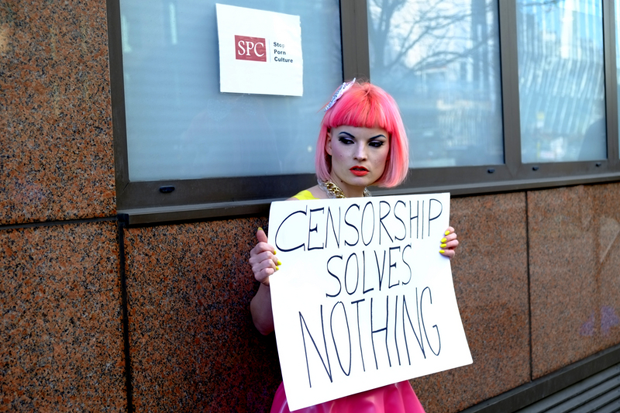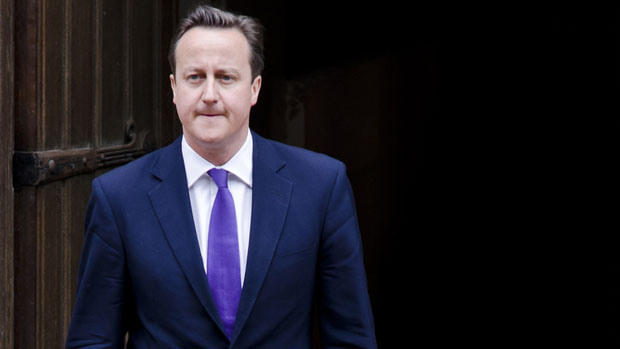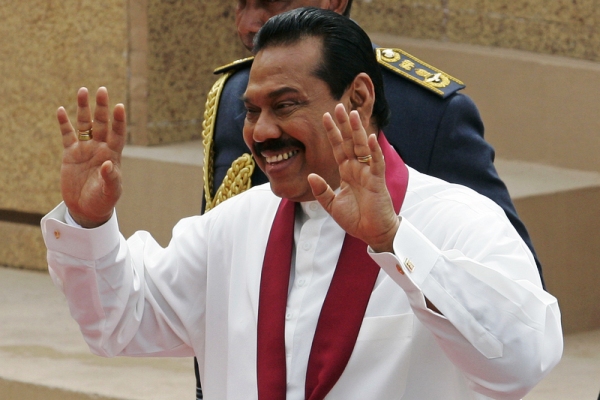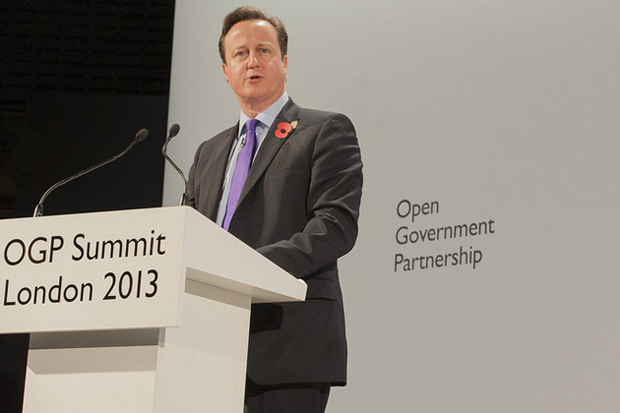11 Apr 2014 | News and features, Politics and Society, Religion and Culture, United Kingdom, Young Writers / Artists Programme

Protesters gathered outside a Stop Porn Culture conference in March 2014 organised by Gail Dines. Protesters included porn stars, filmmakers, artists, sex workers and supporters who believe in freedom of expression. (Photo: Rachel Megawhat/Demotix)
Last year London Mayor Boris Johnson’s aide, Simon Walsh, was arrested for possession of extreme pornography: depictions of anal fisting and urethral sounding. The respected barrister’ very public prosecution tore his life apart and lost him his jobs. In just 90 minutes the jury threw out his case – Walsh’s images were safe and legally produced.
The law under which he was prosecuted (Criminal Justice and Immigration Act 2008) was intended to affect only 30 people per year, but over 1,300 were prosecuted in 2012/13 alone. Clarification of what should be classed as “extreme”, promised by the Lords, never materialised. Government lawyers have attacked a wide range of materials, many of which juries consider innocent.
Now the government is sneaking through a vast extension to pornographic prohibition. It’s so vaguely worded that it could cover 50 Shades of Grey (if filmed), Game of Thrones or Florentine statues. Those found guilty of possession could face 3 years in prison and an unlimited fine.
Under the cloud of Cameron’s anti-child abuse crusade, possessing explicit/realistic portrayals of “the non-consensual penetration of a person’s vagina, anus or mouth by another,” real or simulated, will be illegal. The rhetoric that launched Claire Perry’s disastrous internet filtering initiative – the one that blocks abuse support, sex education and suicide helpline websites – also mandated this law. That rhetoric displays utterly muddled thinking, a confusion between stopping child abuse, stopping children accessing adult material and stopping anyone accessing non-mainstream material.
The change’s motivation is laudable. Genuine rape or abuse depictions (i.e. filming real crimes) should be illegal, all agree. Some women’s groups argue exposure to violent pornography affects viewers’ behaviour- RASASC calls the move a “step forward in preventing rapists using rape pornography to legitimise and strategise their crime”.
However, campaigners contend the draft law’s language is too ambiguous. A policy researcher from anti-censorship organisation Backlash argues: “The law will cover much more than the legislators imagine or intend.” Passing this law as an appendage in a “bumper bill (that includes) lots of legitimate concerns – a radical overhaul of probation and legal aid – (means this) very delicate matter isn’t getting appropriate democratic oversight”.
The government’s strategy, using child pornography as a blanket justification, makes effective opposition or refinement impossible. No politician spoke against the amendment in the bill’s readings or committee stage. Which MP, mindful of re-election, would stand for the right to possess violent erotica? Labour support the provision uncritically, denying it appropriate scrutiny.
Such a serious proscription, which might endanger harmless women and men, merits its own public debate, not back-door legislation. Solicitor Myles ‘ObscenityLawyer’ Jackman, who represented Walsh, highlights the dangerous subjectivity of judging pornography “realistic”, plus the “absence of any evidence proving…a causal link” between such material and Cameron’s “normalise(d) sexual violence against women”. A representative survey of 19,000 UK adults cited by three academics shows 1/3 of adult fantasies include domination or submission, and about 5% of Britons fantasise about delivering/experiencing violence. These academics’ parliamentary evidence repeated Jackman’s scepticism of the link between pornography and real-world crime. Groups like Rape Crisis South London and the End Violence Against Women Coalition assert such pornography does promote dangerous beliefs. The government itself “believes such images are unacceptable and most people would regard them as disgusting and deeply disturbing,” implying the majority’s moral distaste is grounds for legislation.
Groups like Sex & Censorship and Backlash protest the bill’s wording and justification, arguing millions of law-abiding kink practitioners might be criminalised for depicting safe, consensual, private acts. Sexual minorities including the LGBT community, bondage enthusiasts, horror-movie recreators and “vampire and goth enthusiasts who use fake blood in roleplay” could be covered, Backlash told me. Even Rackley and McGlynn, the Durham University academics who championed this law for years, criticise the bill’s wording, demanding clarification specifically banning “realistic images”, protection for “private depictions of consensual BDSM activity” and consideration of context.
Sex-positive feminism raises questions over what the bill would achieve. Arguments that violent pornography (and general sexual imagery) warps childhood development, perpetuates objectification and enables rape culture are valid, but attacking one subsection of pornography won’t stop children seeing questionable images. They fill celebrity magazines, tabloids, advertising and primetime TV.
In terms of child protection, then, this may be window-dressing. It’s far more important for schools to promote effective sex education covering consent, gender, identity and relationships, rather than a “see no evil” approach. Such education is woefully lacking and outdated. Meanwhile the government has cut funding for sexual health services for vulnerable teens and youth services, and is attacking endangered women’s panic rooms via the “bedroom tax”.
The government may be simultaneously attacking the harmless, and harming those who are helpless. The extension of extreme pornography censorship is dangerous because it’s had minimal public discussion, the wording is poorly considered, and it’s unlikely to address the problem used to promote it.
This article was published on April 11, 2014 at indexoncensorship.org
24 Jan 2014 | Digital Freedom, News and features, United Kingdom

(Image: Velvet/Demotix)
It wasn’t meant to be like this.
Connoisseurs of a good political bust-up may have noticed a subtle change in tempo to the online filtering debate over the Christmas period. For the argument, so long owned — in public at least — by the pro-blocking “think of the children” lobby took a sudden and unexpected twist. For a moment, the villains were not selfish libertarians, determined to place personal freedom of expression above child protection — but the incompetents in government, who had demanded a solution that was untested without first ensuring they weren’t doing more harm than good.
What went wrong?
As German military strategist Helmuth von Moltke, in the news during this World War anniversary year, once put it: “no plan of operations extends with any certainty beyond the first contact with the main hostile force”.
It was always going to be an easy win, banging on about the need to protect children and threatening internet service providers with legislation if they didn’t comply with prime ministerial demands over filtering: easy, too, to dismiss the assorted nerds and geeks who warned it wouldn’t work. As a prime ministerial adviser on this topic, Claire Perry, MP put it: “We should not allow the perfect to drive out the good”.
But since November, filters have arrived with a vengeance and even the technologically naive can see that they don’t exactly work as claimed. A BBC expose in December revealed what was always expected: They over blocked some quite useful sites, including sites dealing with LGBTI issues, sex education and even domestic violence and rape, while simultaneously under blocking a lot of porn.
Ooops!
“Not us, guv,” explained a spokesperson for Number 10. Back in July 2013, David Cameron had very presciently blocked all possible blame by requesting the UK Council for Child Internet Safety (UKCCIS) make sure this sort of thing didn’t happen. UKCCIS, a body composed approximately 50% from those with a commercial interest in this area, set up a sub-committee which met in December 2013, some weeks after the first of the new filter solutions hit parental laptops. No minutes, though: open government has been filtered!
Meanwhile, much wordage was being unleashed in the minority and progressive press. Rather like stories about government losing databases a few years back: No sooner had the press happened on one instance of ridiculous blocking, then another even more ridiculous case joined the queue.
In the circumstances, to list the legion legitimate sites that were in one way or another blocked would be tedious. So let’s stick with some of the most serious. BT, it transpired, was offering parents the opportunity to bar access to LGBT material — almost certainly direct discrimination — as well as access to social support.
In other words, if you are a child abuser or perpetrator of domestic violence, just go BT — and you can shut off one avenue to support for your victims. The filter is still available — though BT have tactfully amended the marketing description.
Two firms — Trend Micro and Dell — were also found to be selling a tool that permitted explicit blocking of LGBTI content: both, following exposure by GayStarNews, have subsequently amended their product.
It is unlikely that opinion swung irretrievably against blocking and filtering, but it is clear that the public, now aware of what those techniques mean in practice are suddenly a lot less impressed by political demands for UK providers to censor their net habits.
Along the way came something of an own goal. The latest initiative relates only to filtering and blocking of internet access through pc portals. Mobile phones have been subject to a filtering regime — largely unnoticed — since 2004, while filtering of wifi in public spaces is up for debate in 2014. The bad news, for the former, was that suddenly their activities were up for the same level of criticism as internet service providers, while discussion of the latter may no longer be quite the slam dunk that government had hoped.
So much for the panic: What about solutions? At a parliamentary meeting last week, sponsored by Julian Huppert, MP and organised by the author of this article, Jane Fae, a wide range of groups came together to discuss the issues raised. That included the usual suspects — the minorities on the sharp end of blocking — as well as representatives from industry and members from other parliamentary parties.
The problems raised here were rehashed, but the real focus was on the future, and there was little comfort for advocates of filtering. Speakers talked about taking legal action against filter companies, both in respect to discrimination and, for compensation when, as happened to one businesswoman, they find their business website blocked for no other reason than that she is transgender.
The difficulty is that government ministers have continually harped on about the Internet Watch Foundation as model solution, while blithely ignoring the fact that they also happen to be a Rolls Royce solution: Sites are individually evaluated by individual moderators. This costs serious money.
However, while this is an issue so important that government has threatened legislation if service providers don’t play ball, government — and the public — seem remarkably unwilling to stump up the many millions that would be required to come close to even a partial fix. So service providers have done what they can, reaching out to solution providers such as Nominum, Symantec and Huawei — all non-UK companies — operating a range of different filtering systems behind the veil of “commercial confidentiality” and not subject to UK law.
There is no single central service to check if a website has been wrongly filtered — even by the government’s own criteria — no central process for removing a potentially ruinous misblock. It’s the cheap option: A bit like the government deciding child protection in the UK was so important, it should be sub-contracted to a bunch of unregulated freelance social work providers.
Is regulation the answer? That was suggested, along with licensing of filter solutions and an independent audit of same. That, however, attracted little support in the meeting, being rejected both by those opposed to all filtering, and by those who felt it would create a costly and bureaucratic quango.
At the same time there was somewhat more appetite for central reporting facilities and a central appeals process. Because, how is any legitimate business supposed to conduct itself if it needs to keep a constant eye on upwards of 80 different filtering companies?
What of future debate? Ironically, the day of the meeting, Ofcom was also publishing a report that suggested parents were mostly happy with matters as they were. Government, on the other hand, intends forcing all net users to decide whether to opt out of filtering later this year. Ofcom also pointed out — as experts already did — that children, the objects of all this protection, were becoming increasingly net savvy, with significant numbers knowing how to evade filtering and cover their browsing tracks.
That is a serious issue. It is likely that children in war zones such as Syria or central Africa will have significantly more knowledge of how to use guns than the average British child. Its all about exposure. Whereas Britain, by imposing all these controls, is growing a generation that knows how to evade internet control. From there, it is but a short step to the darknet, where lurks precisely the sort of criminality that government — again — says it wants to eradicate.
We are likely to hear more about the commercial interests involved in all this. For there is a growing realisation that many of the more startling statistics and internet horror stories are produced and disseminated by companies offering filtering solutions and American evangelist organisations: Sometimes one and the same.
It is to be hoped, too, that the media and politicians will be more critical of some of the wilder statistics being tossed around in debate. Take for instance, the incidence of children viewing porn on the internet. “The average child sees their first porn by the age of just 11. Between 60 and 90 per cent of under-16s have viewed hardcore online pornography” — according to a survey carried out in 2010 by Psychologies magazine, based on the views (no numbers cited) of 14 to 16-year-olds at a north London secondary school.
As opposed to the EU Kids Online survey of over 25,000 children in 25 countries that found just 11% of UK children had viewed any form of porn online in the previous 12 months.
Which would you believe? Which do you expect to be cited approvingly — and frequently — in the tabloid press?
So where are we now? Battle has at last been joined, and finally the public can see that there are major practical problems associated with online filtering. That hasn’t, yet, diminished the appetite of the Conservative party for more of the same. Nor has it dissuaded the Labour party from jumping aboard the same bandwagon.
Meanwhile, in an act that smacks of the politics of masochism, Labour appears to have pledged that if voluntary filtering fails, then, if elected in 2015, it will legislate to introduce mandatory filters
This one, it seems, will run and run.
This article was published on 24 January 2014 at indexoncensorship.org
14 Nov 2013 | Asia and Pacific, News and features

President Rajapaksa claims his hands are when it comes to free speech. (Image Chamila Karunarathne/Demotix)
A Channel 4 News team was yesterday barred from travelling to the north of Sri Lanka by a group of angry protesters blocking their train. The pro-government crowd claimed that the reporters were getting money from the Tamil Tigers (LTTE). The crew were eventually escorted out by the police.
Channel 4 News editor Ben De Pear was live tweeting the ordeal. “It seems it is mob rule in Sri Lanka, albeit orchestrated by the authorities to prevent free press access to the north of Sri Lanka,” he posted at the time.
Channel 4 has angered the government of President Mahinda Rajapaksa with a series of documentaries and reports on the alleged of death of some 40,000 Tamils – the figured comes from the UN – in the last weeks of the country’s 30 year long civil war, which ended in May 2009. They have also covered subsequent allegations of human rights abuses like torture and disappearances, levelled at security forces. But De Pear tweeted Rajapaksa had said Sri Lanka is a free country, where you can “go anywhere”.
This comes on the day before the start of the Commonwealth Heads of Government Meeting in the capital Colombo. The biannual summit has been marred by coverage of the continuing poor state of fundamental human rights in the country, with Commonwealth members like India and Canada boycotting in protest. Britain, however, will be attending, with Prime Minister David Cameron stating it is better to confront the country than isolate it. Unlike MPs from Australia and New Zealand on a human rights fact finding mission, who were on Sunday detained and deported, he will presumably be able to enter the country. And with human rights not even on agenda to be formally discussed during the meeting, there are a number of recent issues the Prime Minister can raise in his “serious questions” to President Rajapaksa.
While what has happened to Channel 4 is unacceptable, it is nothing compared to the conditions local journalists work under. Since the murder of Lasantha Wickrematunge in 2009 and the disappearance of cartoonist and columnist Prageeth Eknelygoda in 2010 – neither properly investigated – the country’s media face ongoing repression under the Rajapaksa regime. While freedom of expression is protected in the constitution, little is done to protect it in practise. Intimidation is rife, with journalists attacked and beaten and printing presses destroyed. A recent example was the two-hour long raid on the home of editor and columnist Mandana Ismail Abeywickrema in August. She recently started a journalists’ trade union. Critical reporters have previously been labelled “traitors” by authorities, and at least 26 are currently in exile.
The regime also seems to have a problem with the right to free assembly and civil society gatherings. The vaguely worded 1979 Prevention of Terrorism Act is often used in government crackdowns. Only yesterday, families of disappeared people were barred by the military traveling to a candlelight vigil at an alternative Commonwealth meeting organised by human rights groups in Colombo. One of the conveners of the Alternative People’s Forum, Dr Nimalka Fernando, which is boycotting all official Commonwealth events, was subject to on-air threats from the Chairman of the Sri Lanka Broadcasting Corporation – a state owned radio station.
There is also the case of continuous allegations of torture and forced disappearances levelled at at government and security forces. A recent BBC report by Fergal Keane suggested that while repression has been taking place under successive governments, activists say the situation has worsened under the current regime. A priest who helps victims of torture in the country told the BBC “those who criticise or question the government are being silenced in a very brutal way”.
The government has denied all allegations of human rights abuses, with President Rajapaksa saying today that they ended the killing by defeating the Tamil Tigers. But with the Commonwealth “committed to the Universal Declaration of Human Rights” leaders have a responsibility to hold the Sri Lankan government to account. Hopefully David Cameron’s questions will indeed be serious.
1 Nov 2013 | News and features, United Kingdom

State control of the press is hot topic. On Wednesday, Queen Elizabeth signed off a Royal Charter which gives politicians a hand in newspaper regulation. This come after David Cameron criticised the Guardian’s reporting on mass surveillance, saying “If they don’t demonstrate some social responsibility it will be very difficult for government to stand back and not to act”.
But what does state control of the press really look like? Here are 10 countries where the government keeps a tight grip on newspapers.
Bahrain
Press freedom ranking: 165
The tiny gulf kingdom in 2002 passed a very restrictive press law. While it was scaled back somewhat in 2008, it still stipulates that journalists can be imprisoned up to five years for criticising the king or Islam, calling for a change of government and undermining state security. Journalists can be fined heavily for publishing and circulating unlicensed publications, among other things. Newspapers can also be suspended and have their licenses revoked if its ‘policies contravene the national interest.’
Belarus
Press freedom ranking: 157
In 2009 the country known as Europe’s last dictatorship passed the Law on Mass Media, which placed online media under state regulation. It demanded registration of all online media, as well as re-registration of existing outlets. The state has the power to suspend and close both non-registered and registered media, and media with a foreign capital share of more than a third can’t get a registration at all. Foreign publications require special permits to be distributed, and foreign correspondents need official accreditation.
China
Press freedom ranking: 173
The country has a General Administration of Press, Publication, Radio, Film and Television and an army official censors dedicated to keeping the media in check. Through vaguely worded regulation, they ensure that the media promotes and toes the party line and stays clear of controversial topics like Tibet. A number of journalists have also been imprisoned under legislation on “revealing state secrets” and “inciting subversion.”
Ecuador
Press freedom ranking: 119
In 2011 President Rafael Correa won a national referendum to, among other things, create a “government controlled media oversight body”. In July this year a law was passed giving the state editorial control and the power to impose sanctions on media, in order to stop the press “smearing people’s names”. It also restricted the number of licences will be given to private media to a third.
Eritrea
Press freedom ranking: 179
All media in the country is state owned, as President Isaias Afwerki has said independent media is incompatible with Eritrean culture. Reporting that challenge the authorities are strictly prohibited. Despite this, the 1996 Press Proclamation Law is still in place. It stipulates that all journalists and newspapers be licensed and subject to pre-publication approval.
Hungary
Press freedom ranking: 56
Hungary’s restrictive press legislation came into force in 2011. The country’s media outlets are forced to register with the National Media and Infocommunications Authority, which has the power to revoke publication licences. The Media Council, appointed by a parliament dominated by the ruling Fidesz party, can also close media outlets and impose heavy fines.
Saudi Arabia
Press freedom ranking: 163
Britain isn’t the only country to tighten control of the press through royal means. In 2011 King Abdullah of Saudi Arabia amended the media law by royal decree. Any reports deemed to contradict Sharia Law, criticise the government, the grand mufti or the Council of Senior Religious Scholars, or threaten state security, public order or national interest, are banned. Publishing this could lead to fines and closures.
Uzbekistan
Press freedom ranking: 164
The Law on Mass Media demands any outlet has to receive a registration certificate before being allowed to publish. The media is banned from “forcible changing of the existing constitutional order”, and journalists can be punished for “interference in internal affairs” and “insulting the dignity of citizens”. Foreign journalists have to be accredited with the Ministry of Foreign Affairs.
Vietnam
Press freedom ranking: 172
The 1999 Law on Media bans journalists from “inciting the people to rebel against the State of the Socialist Republic of Vietnam and damage the unification of the people”. A 2006 decree also put in place fines for journalists that deny “revolutionary achievements” and spread “harmful” information. Journalists can also be forced to pay damages to those “harmed by press articles”, regardless of whether the article in question is accurate or not.
Zimbabwe
Press freedom ranking: 133
The country’s Access to Information and Protection of Privacy Act gives the government direct regulatory power over the press through the Media and Information Council. All media outlets and journalists have to register with an obtain accreditation from the MIC. The country also has a number of privacy and security laws that double up as press regulation, The Official Secrets Act and the Public Order and Security Act.
This article was originally posted on 1 Nov 2013 at indexoncensorship.org.




